 |
|
|
May
8, 2007 |
|
|
Tuesday, May 8
University Series
Speaker:
Charles Wheelan
Tuesday, May 22
Informal Smoker
Tower Club Bar
Tuesday, June 4
University Series
Speaker: Ted Foss |
|
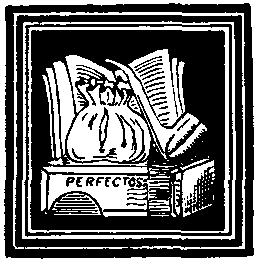 |
|
|
About the Cigar Society |
|
|
ONE OF THE OLDEST
AND greatest traditions of the University Club is the
discussion of intellectual, social, legal, artistic, historical,
scientific, musical, theatrical, and philosophical issues in the
company of educated, bright, and appropriately provocative
individuals, all under the beneficent influence of substantial
amounts of tobacco and spirits.
The University
Club Cigar Society embraces this tradition and extends it
with its fortnightly Informal Smokers, monthly
University Series lectures, and quarterly Cigar Society Dinners,
in which cigars, and from time to time pipes and cigarettes,
appear as an important component of our version of the classical
symposium.
The Informal
Smokers meet at the round table in the Tower Club bar.
There are no reservations or cover charges, and each member
signs his own chit for drinks a lá carte. Sometimes a
theme is published in
advance, but the table talk always strays.
The format of the Cigar Society University Series
includes cocktails at 5:15pm, a lecture or reading starting at
5:30 sharp for about thirty minutes, and discussion and more
cocktails to follow.
Premium open bar and light snacks are included in University
Series events; members sign a chit for $30 and guests may pay $40
(inclusive) in cash.
All University
Club and Tower Club members and their guests are invited to all
Cigar Society events.
To be included in
the Cigar Society's mailing list, write to the Secretary, Curtis
Tuckey, at tuckey@post.com.
|
|
|

The warmth of thy glow,
Well-lighted cigar,
Makes happy thoughts flow,
And drives sorrow afar.
The stronger the wind blows,
The brighter thou burnest!
The dreariest of life's woes,
Less gloomy thou turnest!
As I feel on my lip
Thy unselfish kiss,
Like thy flame-colored tip,
All is rosy-hued bliss.
No longer does sorrow
Lay weight on my heart;
And all fears of the morrow,
In joy-dreams depart.
Sweet cheerer of sadness!
Life's own happy star!
I greet thee with gladness,
My friendly cigar!
—Friedrich Marc |
|
|
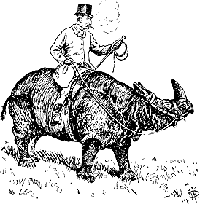
Endangered Species? |
|
|
University
Series, Tuesday, May 8, Tower Club, 5:15 pm |
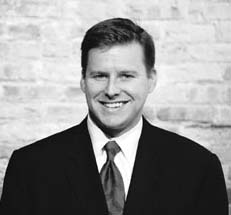 Charles Wheelan, club member and lecturer in public policy at the
University of Chicago, will talk about his forthcoming book, An
Introduction to Public Policy. Cocktails at 5:15, lecture at
5:30, discussion to follow at 6:00.
$30 includes open bar and light hors d'oeuvres. Bring your own cigars. RSVP
TODAY to Laura
Herold, Tower Club Manager. Charles Wheelan, club member and lecturer in public policy at the
University of Chicago, will talk about his forthcoming book, An
Introduction to Public Policy. Cocktails at 5:15, lecture at
5:30, discussion to follow at 6:00.
$30 includes open bar and light hors d'oeuvres. Bring your own cigars. RSVP
TODAY to Laura
Herold, Tower Club Manager.
The discussion to follow may include such public policy issues as the
proposed state-wide smoking ban.
Professor
Wheelan has a PhD in public policy from the
U of
C's Harris Graduate School of Public Policy Studies and a Master
of Public Affairs from Princeton. He is the author of
Naked Economics, a book that the Chicago Tribune
described as "clear, concise, informative, and (gasp) witty."
He also wrote a series of essays to accompany Terry Evans's photographs
for their recent book,
Revealing Chicago. He is currently the author of a regular
Yahoo! column,
The Naked Economist, and is a regular contributor to 848 on WBEZ.
You may peruse Charles Wheelan's web site at
nakedeconomics.com. |
|
Public
Policy in the News: Smoking Banned at the U Club |
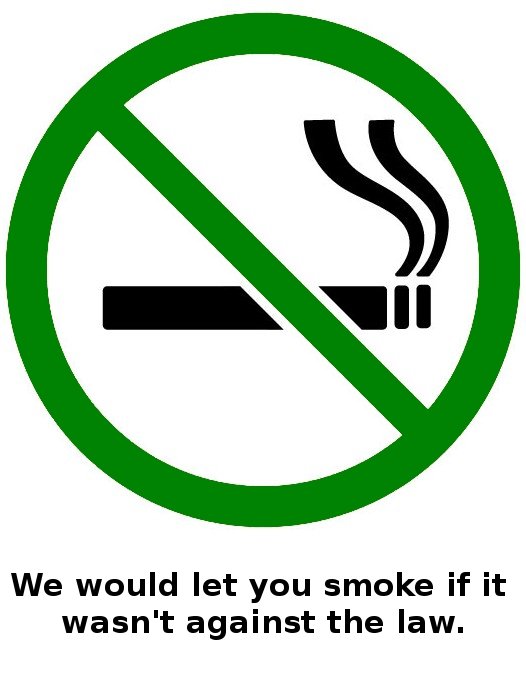 As
of May 1st the Illinois Senate and House have approved Senate Bill
SB0500 and House Bill
HB0246, "The Smoke-Free Illinois Act." Both bills passed
by large margins, with many cosponsors. The prohibition is said to
be based on the Surgeon
General's conclusion that "there is no risk-free level of exposure to
second-hand smoke." As
of May 1st the Illinois Senate and House have approved Senate Bill
SB0500 and House Bill
HB0246, "The Smoke-Free Illinois Act." Both bills passed
by large margins, with many cosponsors. The prohibition is said to
be based on the Surgeon
General's conclusion that "there is no risk-free level of exposure to
second-hand smoke."Cigar
Society regular David Fitzpatrick will give us an update in our
meeting Tuesday on the progress of these bills and the possibility
of exceptions for private clubs.
Further reading:
|
|
Reading
for May, from the Atlantic Monthly,
Jan/Feb 2007 |
|
 When the
French National Library airbrushed the cigarette out of Jean-Paul
Sartre’s hand in a 2005 poster of the iconic, chain-smoking
philosopher, you knew it was only a matter of time. This February,
France joins a growing number of jurisdictions that have implemented
far-reaching smoke-free legislation—including such unusual suspects
as Cuba (after Fidel Castro gave up cigars in 1986) and Hong Kong
(which has temporarily exempted mah-jongg parlors and a few other
places). But while the current antismoking phenomenon may appear
unstoppable, a look back reveals that tobacco bans are hardly
new—and rarely permanent. Here are some of the earlier smoke-free
movements in history. When the
French National Library airbrushed the cigarette out of Jean-Paul
Sartre’s hand in a 2005 poster of the iconic, chain-smoking
philosopher, you knew it was only a matter of time. This February,
France joins a growing number of jurisdictions that have implemented
far-reaching smoke-free legislation—including such unusual suspects
as Cuba (after Fidel Castro gave up cigars in 1986) and Hong Kong
(which has temporarily exempted mah-jongg parlors and a few other
places). But while the current antismoking phenomenon may appear
unstoppable, a look back reveals that tobacco bans are hardly
new—and rarely permanent. Here are some of the earlier smoke-free
movements in history.
1624: On the logic that tobacco use prompts sneezing,
which too closely resembles sexual ecstasy, Pope Urban VIII issues a
worldwide smoking ban and threatens excommunication for those who
smoke or take snuff in holy places. A century later, snuff-loving
Pope Benedict XIII repeals all papal smoking bans, and in 1779, the
Vatican opens its own tobacco factory.
1633: Sultan Murad IV prohibits smoking in the Ottoman
Empire; as many as eighteen people a day are executed for breaking
the law. Murad’s successor, Ibrahim the Mad, lifts the ban in 1647,
and tobacco soon becomes an elite indulgence—joining coffee, wine,
and opium, according to a historian living under Ibrahim’s reign, as
one of the four “cushions on the sofa of pleasure.”
1634: Czar Michael of Russia bans smoking, promising even
first-time offenders whippings, floggings, a slit nose, and a
one-way trip to Siberia. By 1674, smokers are deemed criminals
subject to the death penalty. Two years later, the smoking ban is
lifted.
1646: The General Court of Massachusetts Bay prohibits
citizens from smoking tobacco except when on a journey and at least
five miles away from any town. The next year, the Colony of
Connecticut restricts citizens to one smoke a day, “not in company
with any other.” Though some statutes remain on the books for
decades, enforcement diminishes, and by the early 1700s, New England
is a major consumer and producer of tobacco.
1891: Angered by the shah’s generous tobacco concession to
England, Iranians protest widely, and the Grand Ayatollah Haji Mirza
Hasan Shirazi issues a fatwa banning Shiites from using or trading
tobacco. The tensions spark the Tobacco Rebellion—the culmination of
a long-standing confrontation between Iran’s shahs and its clergy
over foreign influence. The following year, once the country’s
business dealings with the Brits are revoked, Iran’s Shiites happily
resume smoking.
1895: North Dakota bans the sale of cigarettes. Over the
next twenty-six years, fourteen other statehouses, propelled by the
national temperance movement, follow suit. Antismoking crusader Lucy
Gaston announces her candidacy for president in 1920—the same year
Warren G. Harding’s nomination is decided by Republican Party bosses
in a “smoke-filled room.” By 1927, all smoke-free legislation—except
that banning the sale of cigarettes to minors—is repealed.
1942: Adolf Hitler calls tobacco “the wrath of the Red Man
against the White Man, vengeance for having been given hard liquor,”
and directs one of the most aggressive antismoking campaigns in
history, including heavy taxes and bans on smoking in many public
places. The country’s antismoking movement loses most of its
momentum after the Nuremberg trials, and by the mid-1950s, domestic
consumption exceeds prewar levels.
From the Atlantic archives:
Flashbacks: "To Smoke or Not to Smoke?"
Articles from the 1860s to the 1990s take up the contentious
question.
|
|
|
|
Pipe
Smoker's Corner
(by Jeff Dean)
|
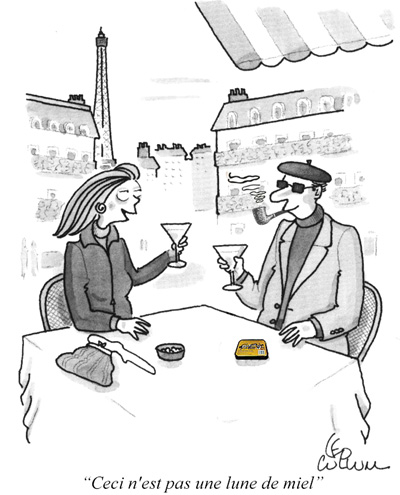 |
|
In our last meeting
. . . |
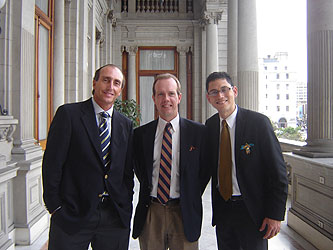 |
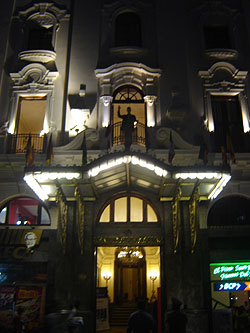 |
| Oscar de Osma, fifth-generation member and President of the
Club Nacional del Perú, with Curtis Tuckey and Víctor Tutivén
in Lima. |
Tuckey greeting
the crowds from the balcony of his suite at Hotel Gran Bolívar,
Plaza San Martín, Lima. |
|
|
|
|
|
|
University Club Cigar Society
Officers for 2007.
David O'Connor, King. Gerald I. Bauman, Treasurer. Curtis
Tuckey, Secretary. J. Douglas Johnson, Liaison to Chicago
Croquet Club (Honorary).
Jeffrey Dean, Chair of the Subcommittee concerning Pipe Smoking.
Alexander Sherman, Metropolitan Philosopher. Thomas S. O'Brien,
Stentorian. John H. Nelson, Herald.
|
|
|
|